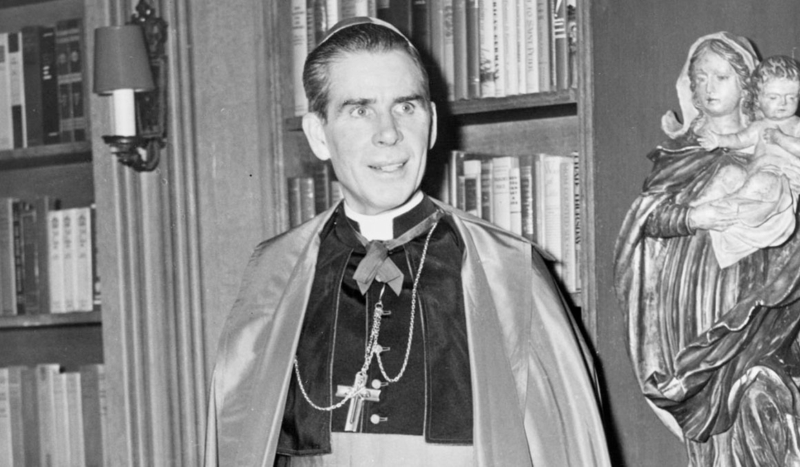
Fred Palumbo / Library of Congress
The election of Pope Leo XIV — the first American-born pontiff — is stirring questions about the growing influence of US Catholicism in the life of the global Church.
In a recent Crisis Magazine article, author Greg Cook explored the connection between the newly elected pope and another towering figure from the same state: Venerable Fulton Sheen.
Rather than seeing Sheen eclipsed by a new figure, Cook framed Pope Leo’s election as “a continuation of Sheen’s legacy in several ways.”
That legacy, he wrote, is most clearly reflected in “engagement with the world for the proclamation of Christ” and “personal devotion to Mary.”
Two additional connections are less widely noted. One is both men’s deep appreciation for the Catholic Eastern churches. According to Cook, Sheen helped introduce millions of Americans to the richness of the Eastern liturgy, notably in 1956 when he celebrated a Byzantine Rite liturgy in English.
“Sheen’s performance marked the first Pontifical Mass ever sung in English, and the first in the Byzantine Rite to be celebrated, with special Vatican permission, by a Latin Rite bishop,” Cook wrote.
Pope Leo, for his part, praised Eastern Catholics in one of his first public engagements, noting their “perseverance” and “devotion to liturgical excellence.”
>> Pope Leo XIV urges care and support for Christian East, especially amid diaspora <<
The other connection is the date of Pope Leo’s election — May 8, which happens to be Sheen’s birthday. Cook also noted that on the Byzantine calendar, May 8 is the feast of St. John the Evangelist and Theologian, “the theologian par excellence amongst the apostles.”
“His other noteworthy attributes include being the apostle Jesus loved, the only one who stood by the Cross, the adopted son and protector of the Blessed Mother, and the teacher of Eastern saints such as Polycarp,” Cook wrote. “In all those ways, he serves as a splendid role model for Pope Leo as well as a bridge between East and West.”
In his first words as pontiff, Pope Leo said, “Peace be with you! It is the peace of the risen Christ.” His papal motto, In Illo Uno Unum (“In the One, we are one”), echoes St. Augustine’s call for unity centered in Christ.
Cook also raised the question of whether Pope Leo might advance Sheen’s beatification cause, long delayed by administrative disputes and what Cook described as Pope Francis’ seemingly “scant love” for the US and its Catholic citizens.
“We could expect Pope Leo, even after a number of years in Latin America, to not be reflexively anti-American,” Cook said.
He added hope that Pope Leo might “present to a world skeptical of American influence and inclined to misunderstand Americans a son of America and embodiment of what is good in the American character.”
Cook also noted that both Sheen and Pope Leo come from immigrant families. While Sheen’s Irish heritage is widely recognized, Pope Leo’s background reflects a broader spectrum of Catholic immigrant experiences, including Italian, French, Spanish, and Creole roots.
Together, they represent what Cook called “the American story, but [also] the story of Catholics throughout the world.”

